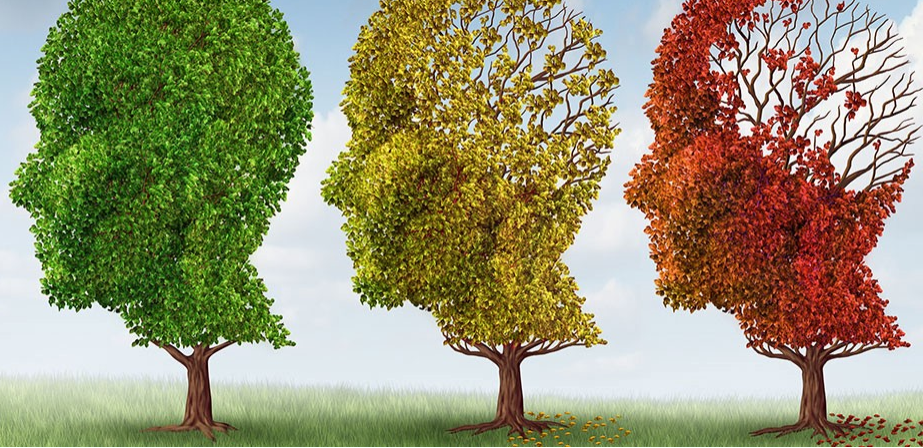Comments
- No comments found

Our memories are not as reliable as we think they are. In fact, they are prone to error and distortion.
Memory illusion is a phenomenon where we remember events that never happened or remember them differently from how they actually occurred. This can have serious implications, especially in situations where eyewitness testimony is crucial, such as in criminal investigations.
Understanding the science of memory illusion can help us better understand the human brain and how to improve the accuracy of our memories.
Memory illusions can have serious consequences in legal cases. Eyewitness testimony, which is often relied upon in court, can be incredibly unreliable due to the prevalence of memory illusions. In fact, research has shown that eyewitness testimony is one of the leading causes of wrongful convictions.
One high-profile example of the dangers of memory illusions in legal cases is the case of Steven Avery, who was convicted of murder in 2007 based largely on the testimony of eyewitnesses. Avery was later exonerated after DNA evidence proved his innocence, but the case highlighted the flaws in relying on eyewitness testimony.
Memory illusions can also have more everyday implications. For example, if a person believes that they remember a conversation or event that never actually happened, this can lead to misunderstandings and conflict in their relationships.
Memory illusion is a phenomenon where our brains create false memories, making us believe that we remember events that never happened or remember them differently from how they actually occurred. Memory illusion is not a sign of memory failure but rather a byproduct of how our brains store and retrieve memories.
Memory illusion can have serious implications in real life. In criminal investigations, eyewitness testimony can be unreliable due to memory illusion. In one case, a man was wrongly convicted of rape based on the testimony of the victim, who claimed to have seen his face in a dream. The victim's memory was likely influenced by suggestions from the police and prosecutor, leading her to create a false memory of the perpetrator. Memory illusion can also occur in everyday life, such as misremembering details of a conversation or a past event.
Memory illusion occurs due to a combination of factors, including perception, suggestion, and cognitive biases. Our brains use sensory input to create a mental representation of the world around us, and these representations can be distorted or manipulated by external factors. Suggestion and cognitive biases can also influence how we remember events.
Perception plays a significant role in memory illusion. Our brains use sensory input to create mental representations of the world around us. However, these representations are not always accurate, as they are influenced by our expectations and prior experiences. For example, in a study where participants were shown a video of a car accident, those who were asked "How fast were the cars going when they smashed into each other?" reported higher speeds than those who were asked "How fast were the cars going when they hit each other?" This is because the word "smashed" suggests a more severe collision, leading participants to overestimate the speed of the cars.
Suggestion can also have a significant impact on memory. In a study where participants were shown a fake advertisement for Disney World featuring Bugs Bunny, 25% of the participants claimed to have met Bugs Bunny at Disney World as children. This false memory was created by the suggestion in the advertisement that Bugs Bunny was a character at Disney World. Similarly, in criminal investigations, eyewitness testimony can be influenced by leading questions or suggestive lineups, leading to the creation of false memories.
One way that memory illusions can be created is through suggestion. This involves planting false memories in a person's mind by suggesting events or experiences that did not actually happen. A classic example of this is the "Lost in the Mall" study, where researchers were able to convince participants that they had been lost in a shopping mall as a child, even though this never happened.
Another way that memory illusions can be created is through misinformation. This involves providing incorrect information or details about an event, which can lead a person to construct a false memory of what happened. For example, if someone is told that they saw a blue car when in fact the car was red, they may later remember the car as being blue.
Finally, memory illusions can also be created through the power of imagination. When a person is asked to imagine an event or experience, this can sometimes be enough to create a false memory. For example, if a person is asked to imagine a childhood birthday party that they never actually had, they may later remember the event as if it did happen.
Memory illusions are a fascinating and complex aspect of human cognition. While they can be entertaining and even amusing in some contexts, they can also have serious consequences in legal cases and everyday life.
As our understanding of the brain and memory continues to evolve, it is likely that we will continue to uncover new insights into the workings of memory illusions. By learning more about these phenomena, we can develop strategies to mitigate their negative effects and help people form more accurate and reliable memories.
Leave your comments
Post comment as a guest